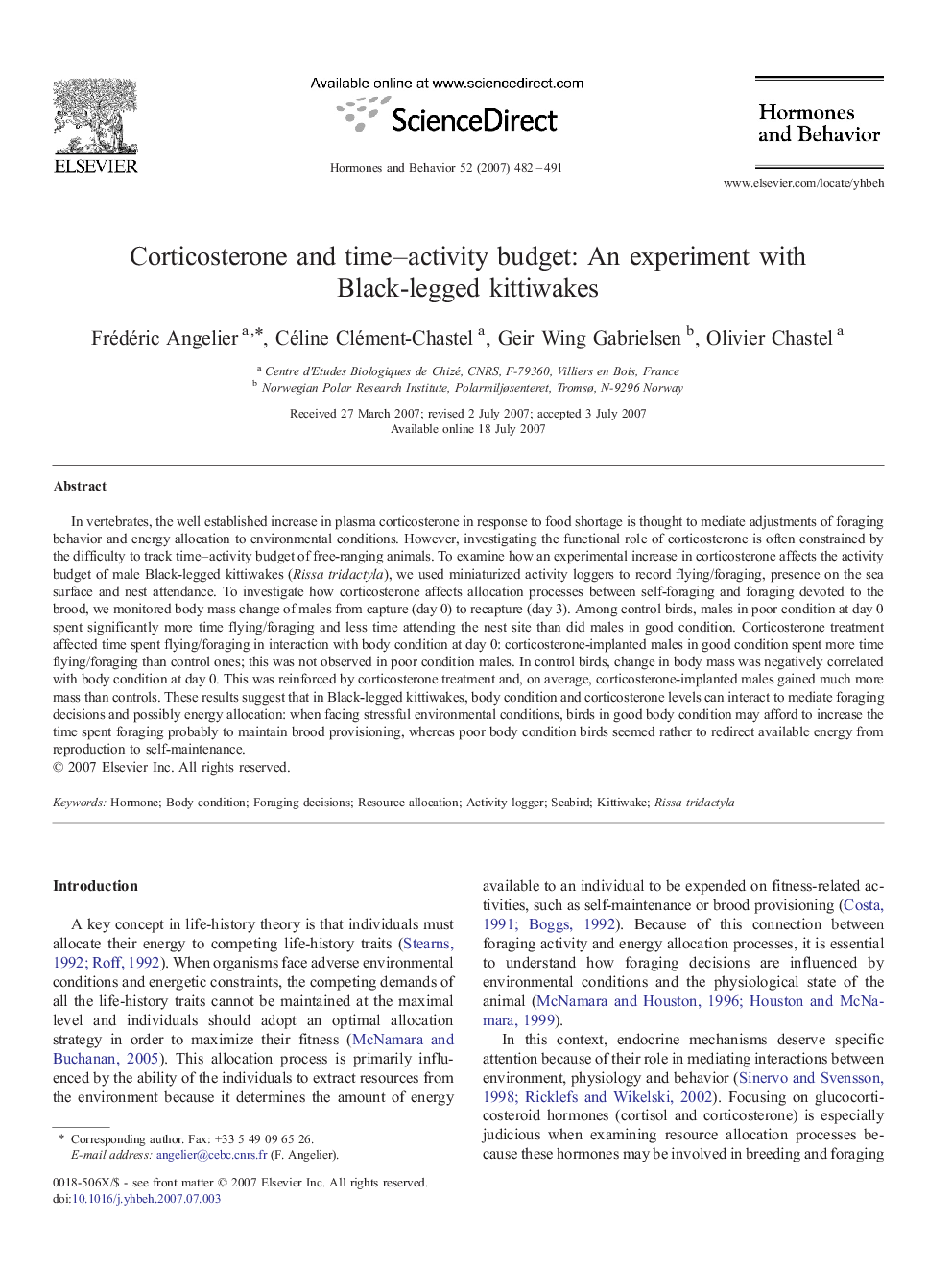| کد مقاله | کد نشریه | سال انتشار | مقاله انگلیسی | نسخه تمام متن |
|---|---|---|---|---|
| 322951 | 540295 | 2007 | 10 صفحه PDF | دانلود رایگان |

In vertebrates, the well established increase in plasma corticosterone in response to food shortage is thought to mediate adjustments of foraging behavior and energy allocation to environmental conditions. However, investigating the functional role of corticosterone is often constrained by the difficulty to track time–activity budget of free-ranging animals. To examine how an experimental increase in corticosterone affects the activity budget of male Black-legged kittiwakes (Rissa tridactyla), we used miniaturized activity loggers to record flying/foraging, presence on the sea surface and nest attendance. To investigate how corticosterone affects allocation processes between self-foraging and foraging devoted to the brood, we monitored body mass change of males from capture (day 0) to recapture (day 3). Among control birds, males in poor condition at day 0 spent significantly more time flying/foraging and less time attending the nest site than did males in good condition. Corticosterone treatment affected time spent flying/foraging in interaction with body condition at day 0: corticosterone-implanted males in good condition spent more time flying/foraging than control ones; this was not observed in poor condition males. In control birds, change in body mass was negatively correlated with body condition at day 0. This was reinforced by corticosterone treatment and, on average, corticosterone-implanted males gained much more mass than controls. These results suggest that in Black-legged kittiwakes, body condition and corticosterone levels can interact to mediate foraging decisions and possibly energy allocation: when facing stressful environmental conditions, birds in good body condition may afford to increase the time spent foraging probably to maintain brood provisioning, whereas poor body condition birds seemed rather to redirect available energy from reproduction to self-maintenance.
Journal: Hormones and Behavior - Volume 52, Issue 4, November 2007, Pages 482–491